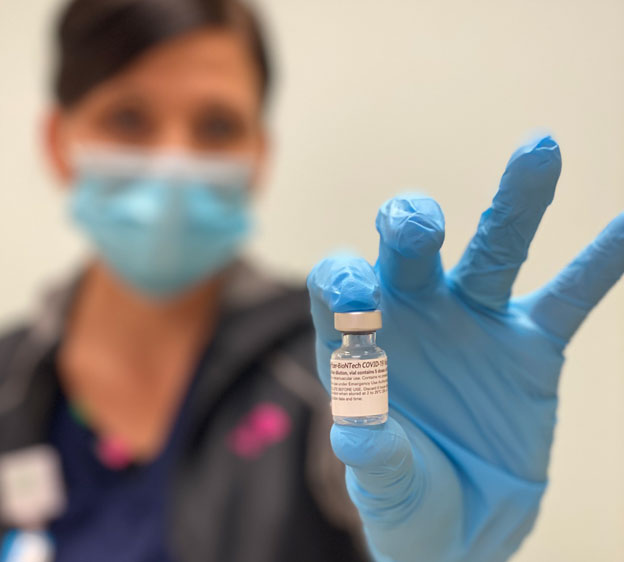Addressing Vaccine Concerns: Myth vs. Fact
August 1, 2021
Being cautious isn’t a bad thing. With so much information circulating online, having a healthy amount of skepticism is necessary to sort fact from fiction. But don’t let false rumors or unsolicited advice get in the way of your health. We’ve sorted through myths and facts about vaccines so you can make an informed decision to protect you and your family.
MYTH: Vaccines contain harmful ingredients.
FACT: Vaccines contain a small amount of specific ingredients to keep the product safe for use. Ingredients in vaccines have been studied for their safety and effectives, and manufacturers use only the amounts necessary to keep vaccines effective while not causing unintended effects. For example, many vaccines contain thimerosal, a mercury-containing compound used as a preservative. Thimerosal keeps harmful bacteria and fungi from growing inside the vaccine. All available evidence shows that the ingredient is safe at the amount approved for use in vaccines. Thimerosal is not an ingredient in the Pfizer-BioNTech or Moderna COVID-19 vaccines. See what is in the Pfizer-BioNTech COVID-19 vaccine.
Read More: The COVID-19 Vaccine Explained
MYTH: You can get COVID-19 from the vaccine.
FACT: Current COVID-19 vaccines do not contain the live virus. Vaccines teach your body to recognize and destroy the virus. After your shot, you may experience mild side effects, such as a fever, chills, headache or tiredness. This isn’t COVID-19 itself, but a normal sign your body is building immunity to the virus. Symptoms should resolve in a day or two and you’ll feel back to normal.
Read More: Shots for Grown-Ups
MYTH: Children cannot get the vaccine because it’s dangerous.
FACT: At this time, children and adolescents younger than 12 years old should not receive the Pfizer-BioNTech COVID-19 vaccine, and those younger than 18 years old should not receive the Moderna or Johnson & Johnson COVID-19 vaccine. The vaccines won’t be approved for use in children until more studies are completed with younger age groups. Currently there are no reasons the safety and effectiveness of the vaccine would differ in children. For now, keep up with your children’s regular immunizations to avoid other preventable illnesses.
Read More: Your Child’s Back-to-School Immunization Checklist
MYTH: Natural immunity is better than a vaccine.
FACT: People who get COVID-19 may only experience mild symptoms, while others may have severe complications. COVID-19 vaccination gives you the antibody response needed to prevent getting very sick or dying from the illness. Even those who have positive results from an antibody test may still benefit from the vaccine.
Read More: COVID Vaccine Making a Difference Locally
MYTH: The vaccine effects fertility.
FACT: There is no evidence showing that any vaccines, including those for COVID, cause problems for women or men trying to get pregnant now or in the future. In addition, evidence about the safety and effectiveness of vaccination during pregnancy has shown that the benefits of receiving a COVID-19 vaccine outweigh any known or potential risks of vaccination during pregnancy. So if you are trying to become pregnant, you do not need to avoid pregnancy after COVID-19 vaccination.
Learn more about the COVID-19 vaccine and how you can get vaccinated.
If you experience signs of COVID-19, including fever, cough, shortness of breath, fatigue or a new loss of taste or smell, contact your primary care provider or one of our Express Care clinics for how to proceed.
